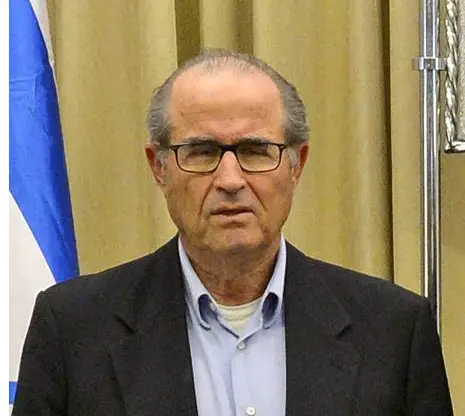Shabtai Shavit
(1939 - )
 |
Shabtai Shavit was the seventh Director of the Mossad, and served from 1989-1996. He was born in pre-State Israel in 1939, and grew up in Nesher. His father was a school principal and his mother taught nursery school. He is married with three children.
Shavit is a graduate of Hebrew Reali School. In the army, he served in the IDF’s Sayeret Matkal (special forces unit) immediately following its establishment. He earned a B.A. in Middle East studies from Hebrew University and an M.A. in public administration from Harvard.
Shavit joined the Mossad in 1964. He served in operational functions and senior command positions in Israel and abroad. He also served as second-in-command to Mossad Director Nahum Admoni in 1986–1989. He was appointed Director of the Mossad in 1989. He was the second director, following Admoni, to have grown within the Mossad, and was the last director whose name was classified during his term.
Shabtai Shavit adapted the structure and deployment of the Mossad, as well as its combat doctrine, to fit the significant historic events and changes that occurred in the world in the course of his term. Reference is to events and changes such as: The breakup of the Soviet Union and the East European bloc; the end of the Cold War; China opened up to the world; the influence of the eastern Asian countries on the global economy increased; and globalization began gaining momentum. In the Middle East, Iran joined the race for nuclear development, as did Saddam Hussein’s Iraq. Iraq invaded Kuwait, which resulted in the forming of an international coalition of countries, led by the U.S., and the break out of the first Gulf War.
During Shavit’s term, the peace agreement between Israel and Jordan was signed in 1994. The Mossad was involved in the negotiations to reach the agreement, which was eventually achieved after many years of covert ties between Israel and Jordan.
Upon his taking up the position, the issue of the Mossad’s organizational culture, which focused on values and manpower dilemmas, was examined extensively. As a result, the Mossad’s credo was drafted, and its values and culture were defined.
After completing his Mossad service, Shavit was appointed general manager of Maccabi Health Care Services, and then turned to business. He also served for many years as an advisor to the Subcommittee for Secret Services of the Knesset’s Foreign Affairs and Defense Committee.
Source: The Mossad;
Wikimedia.


